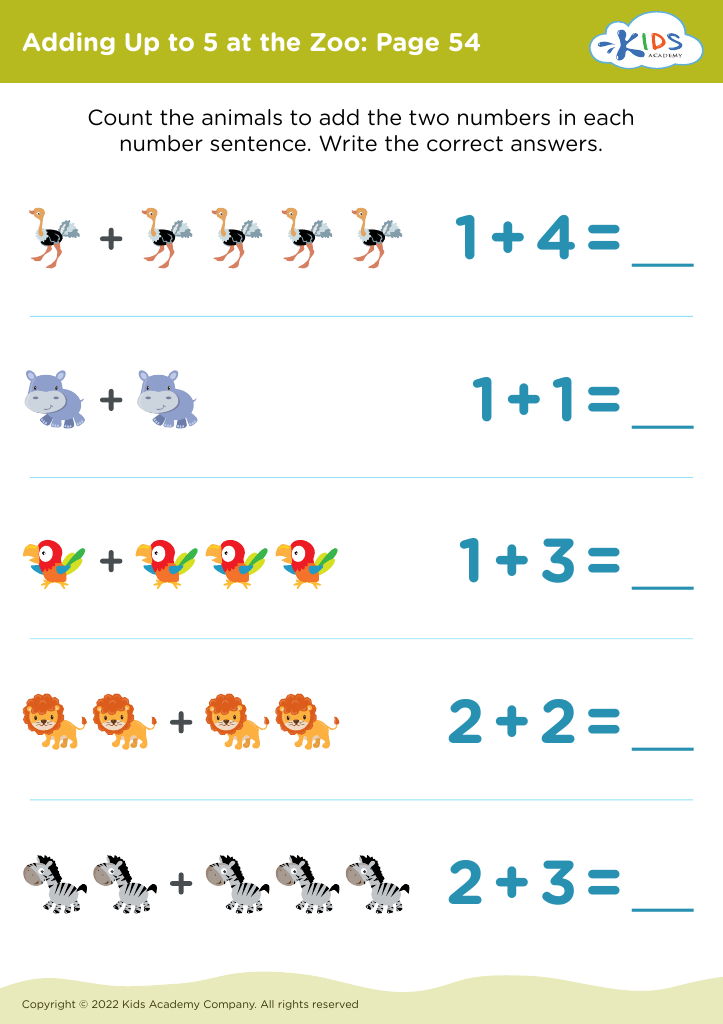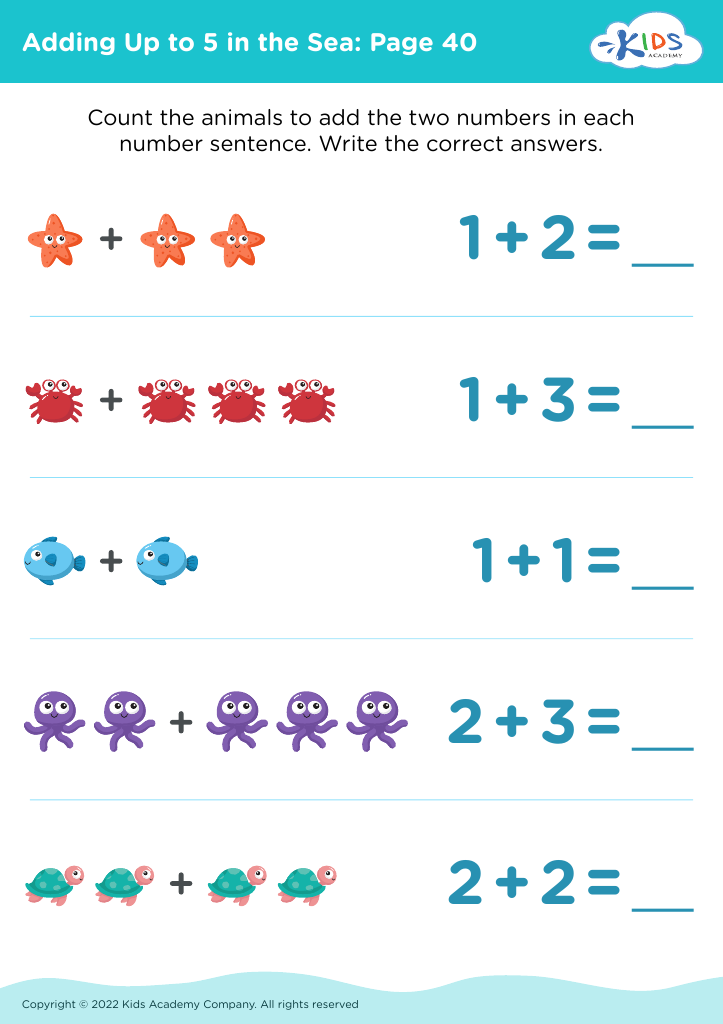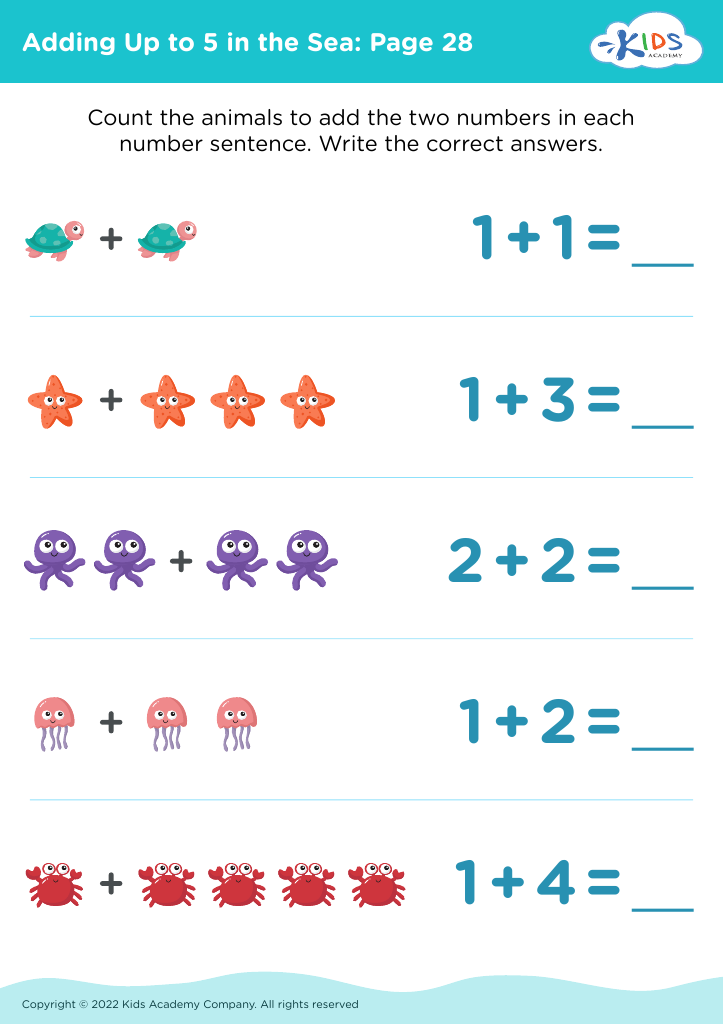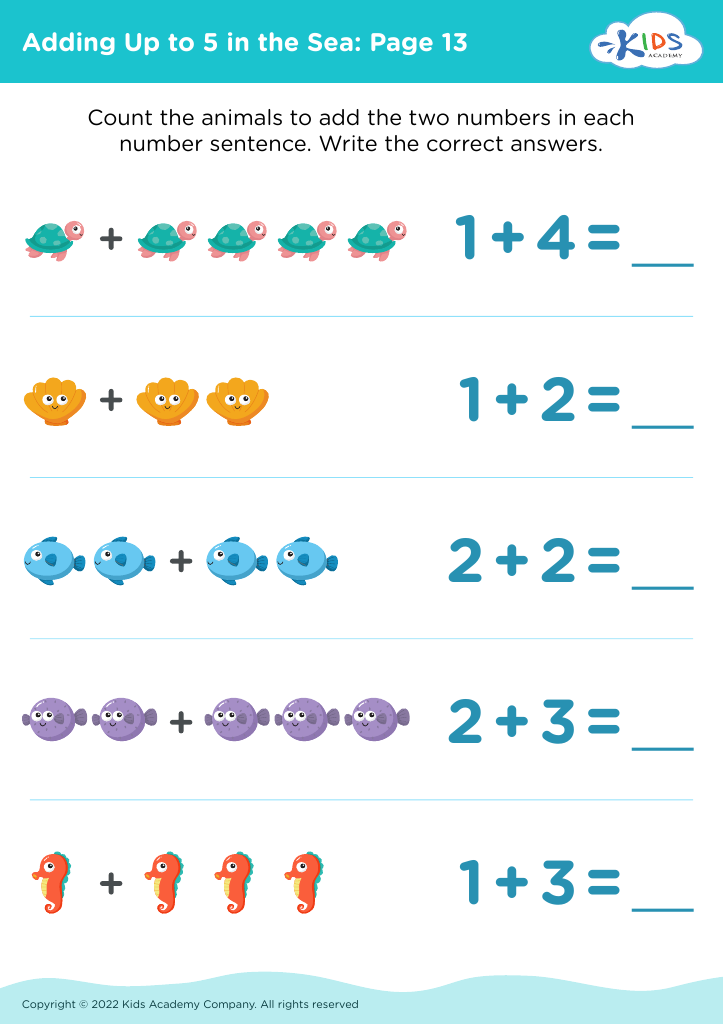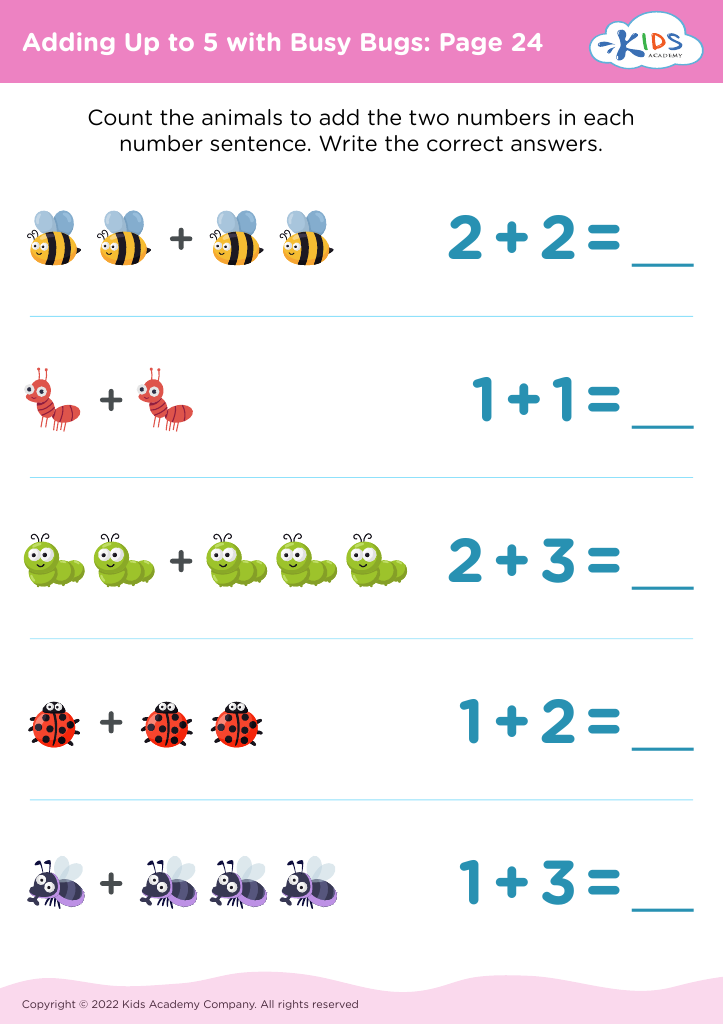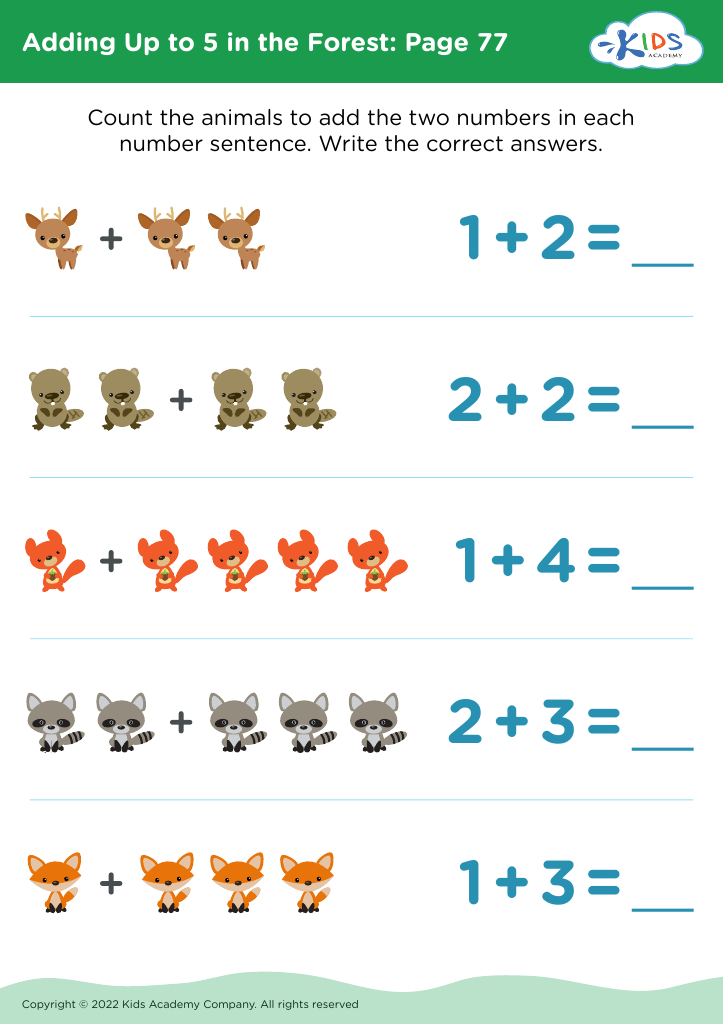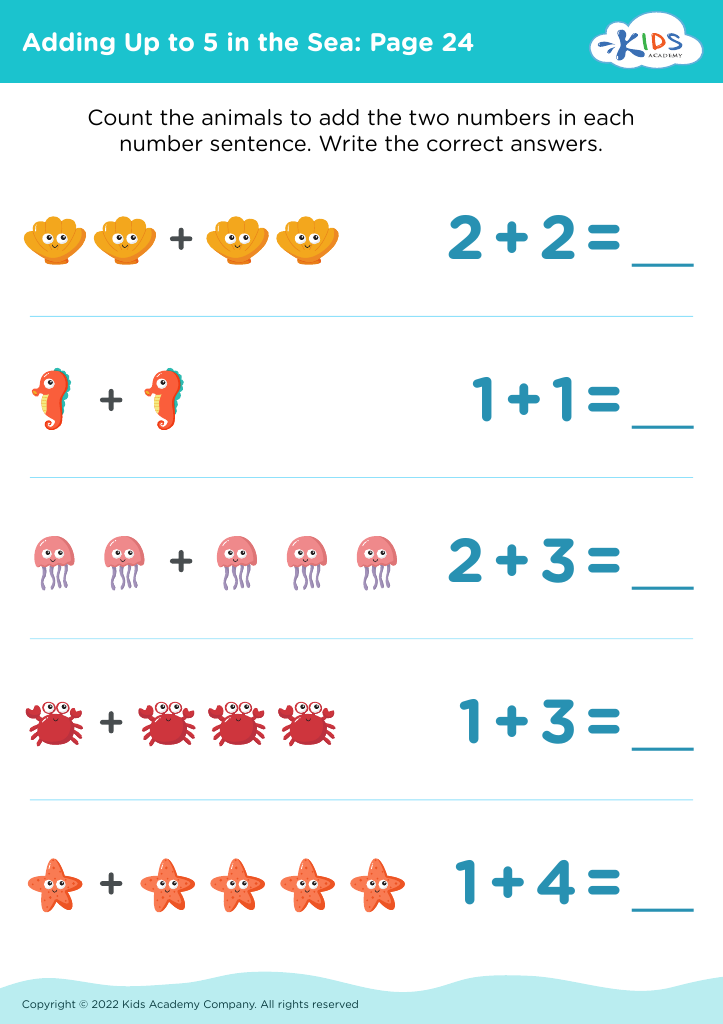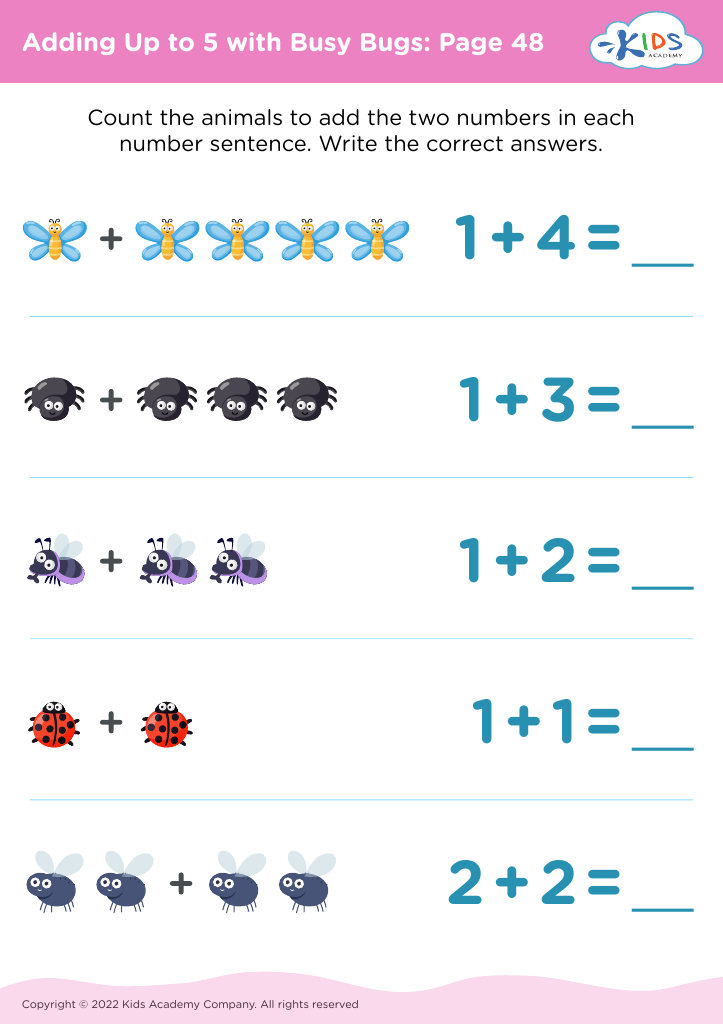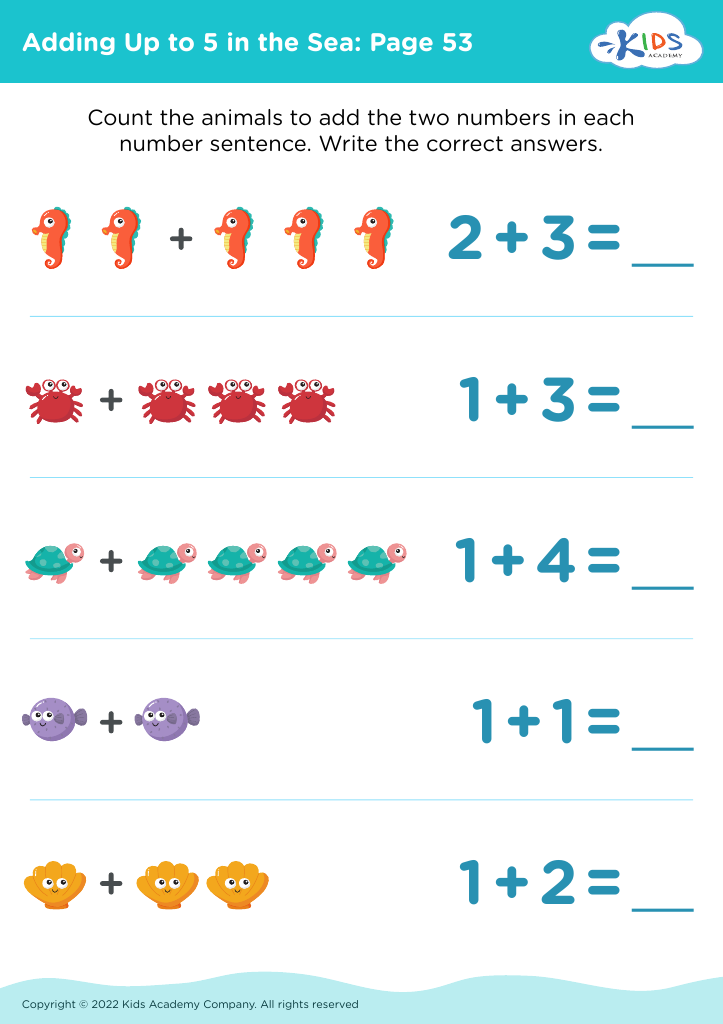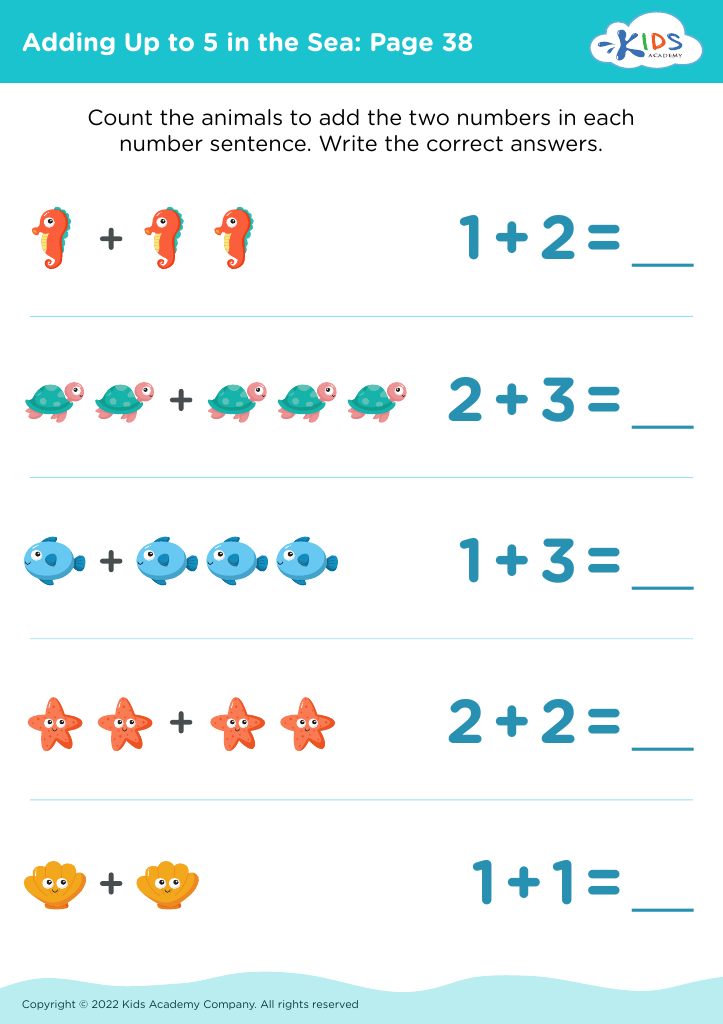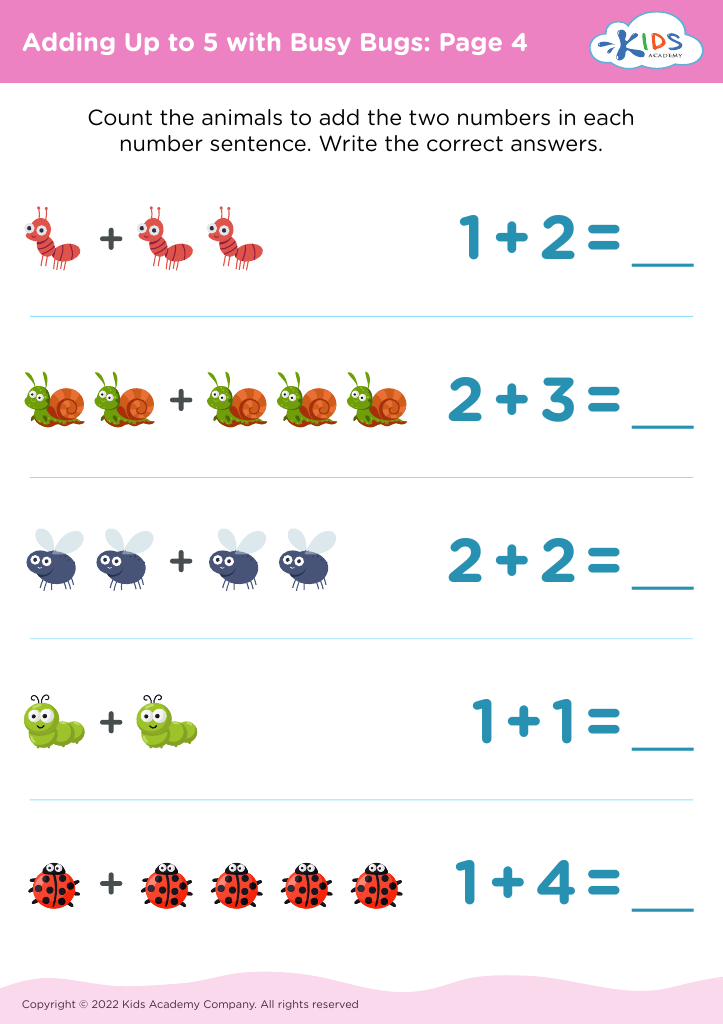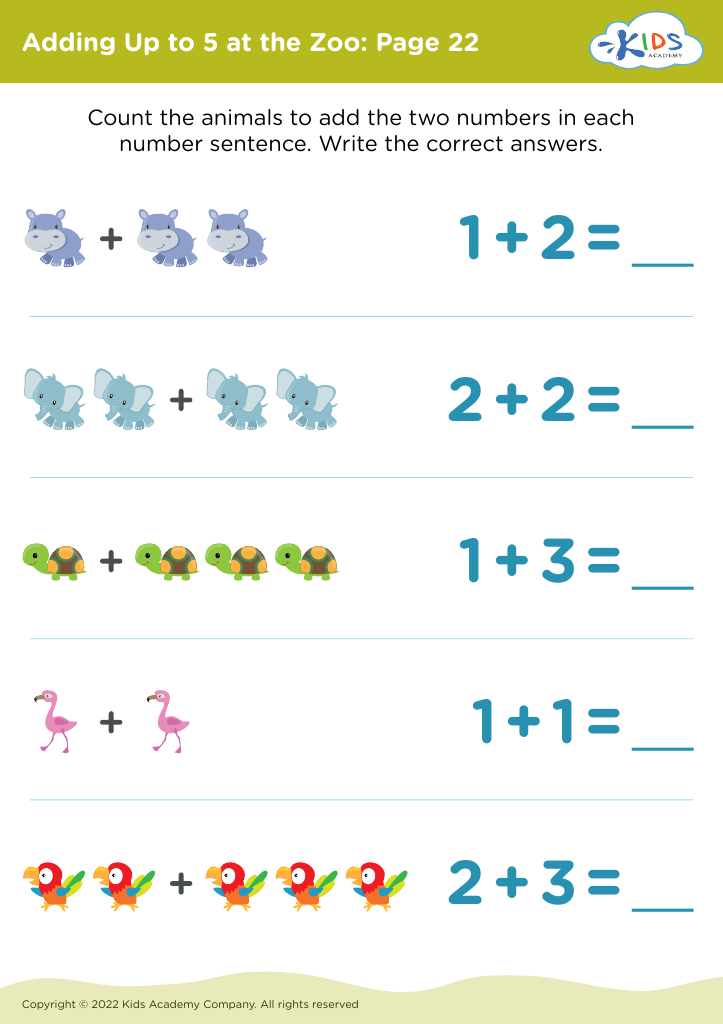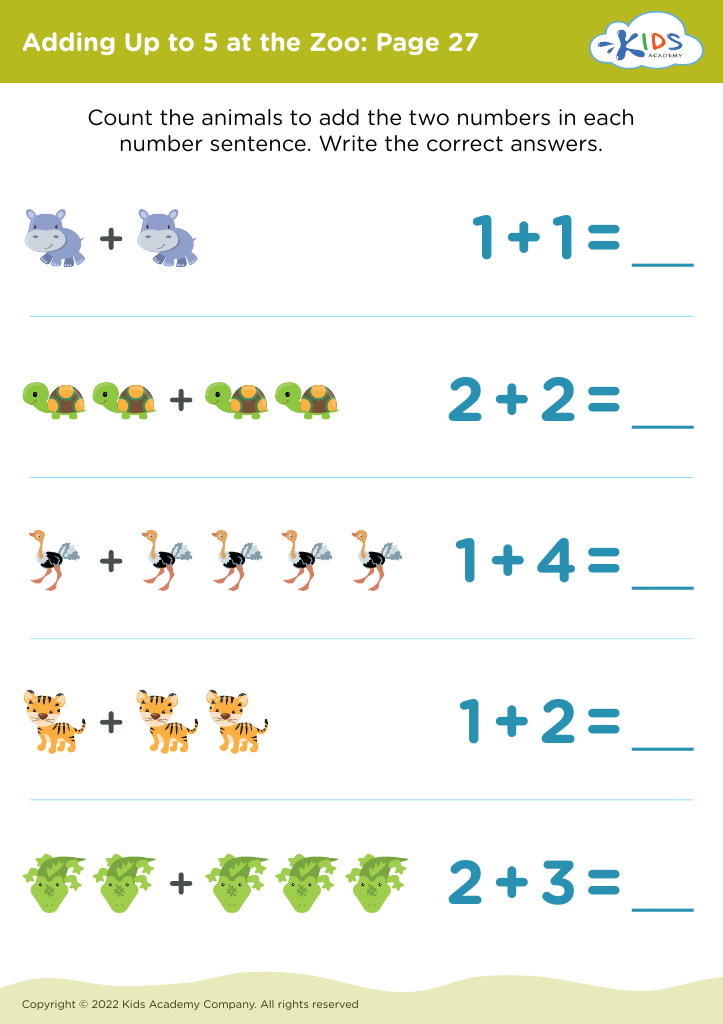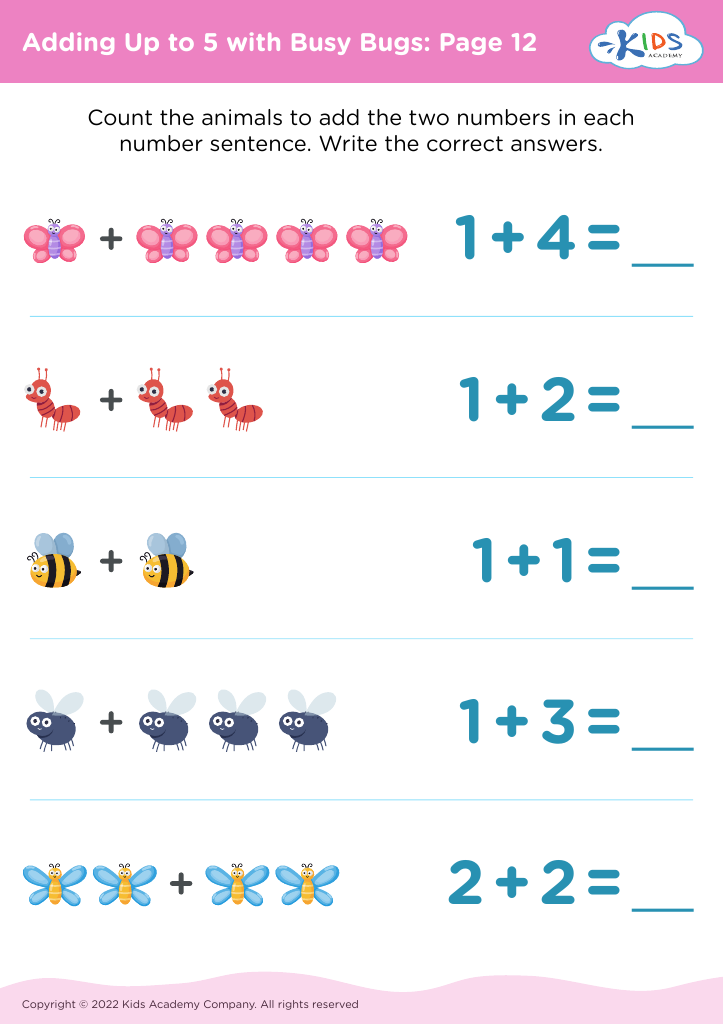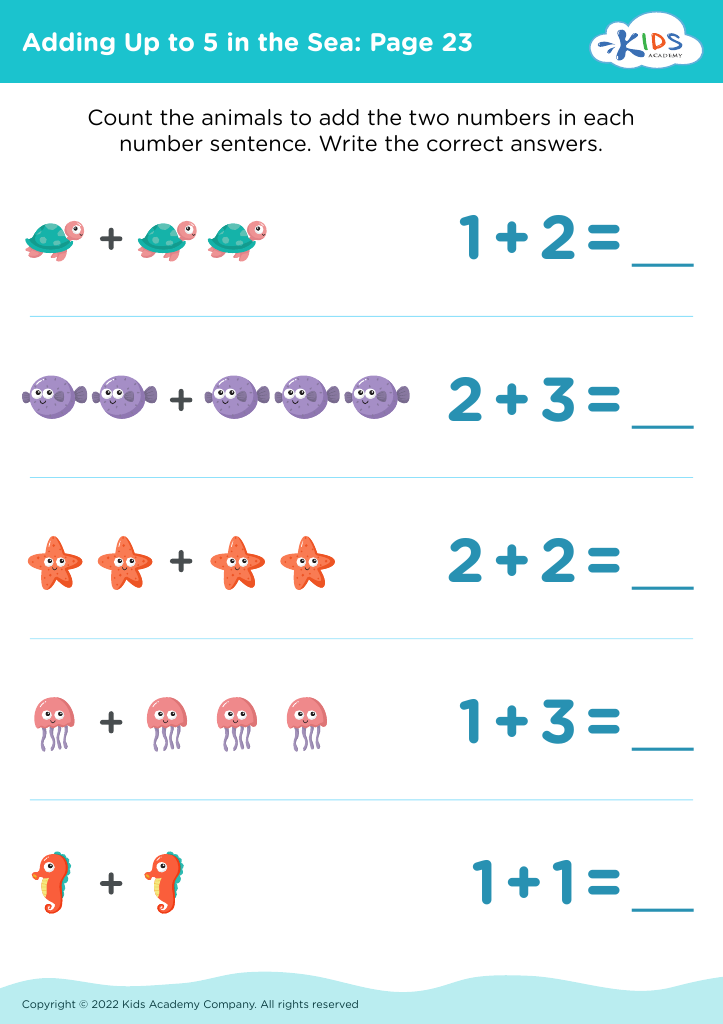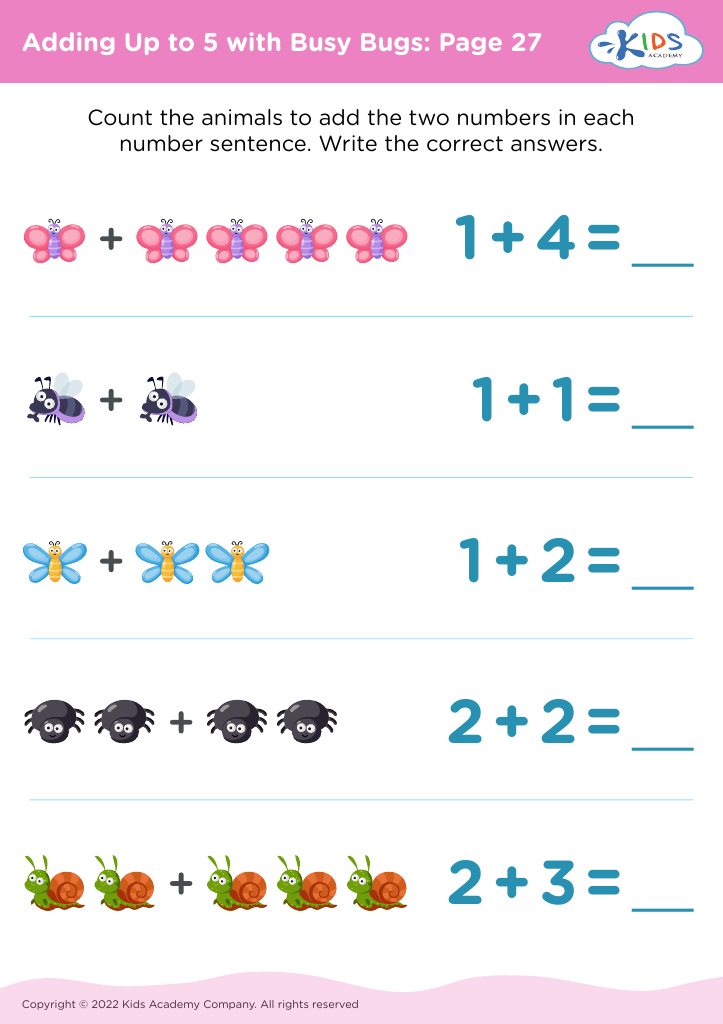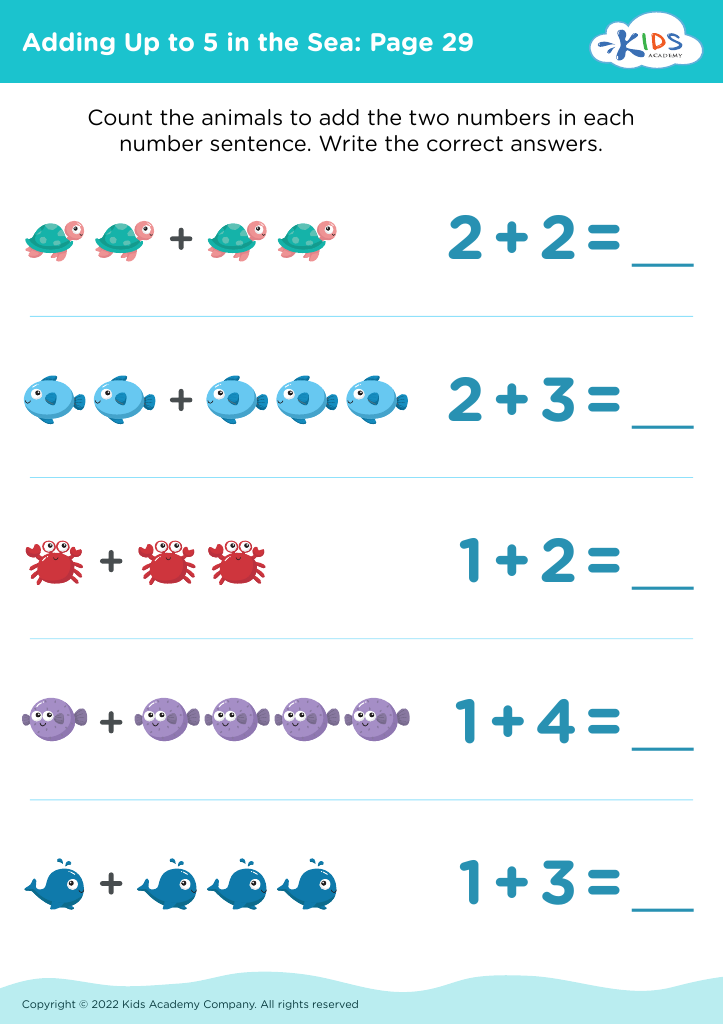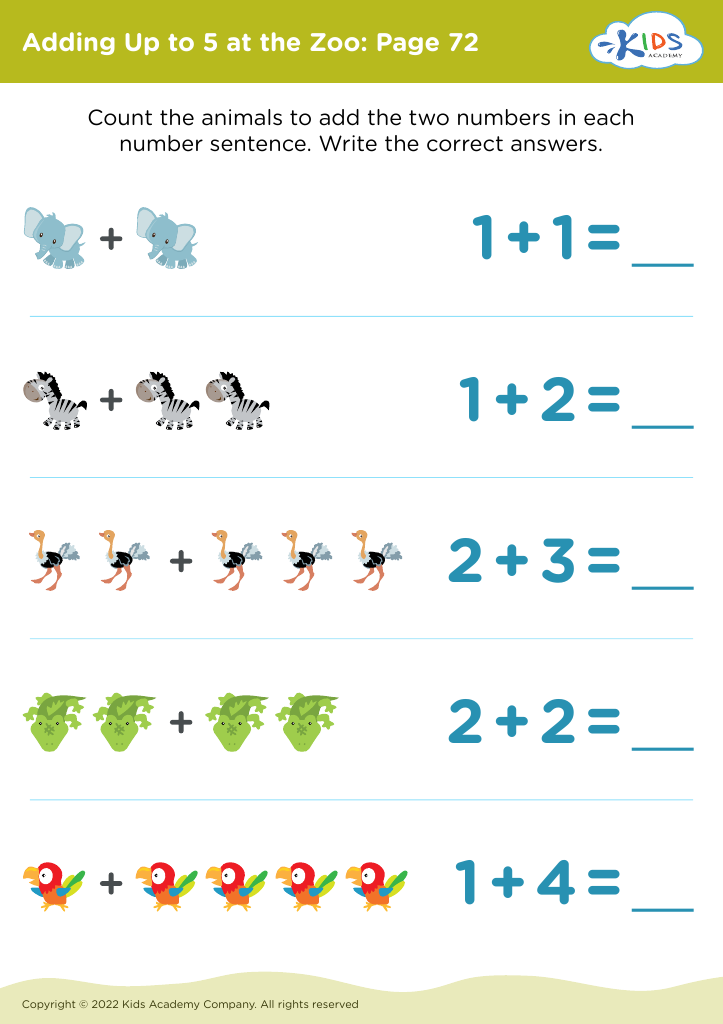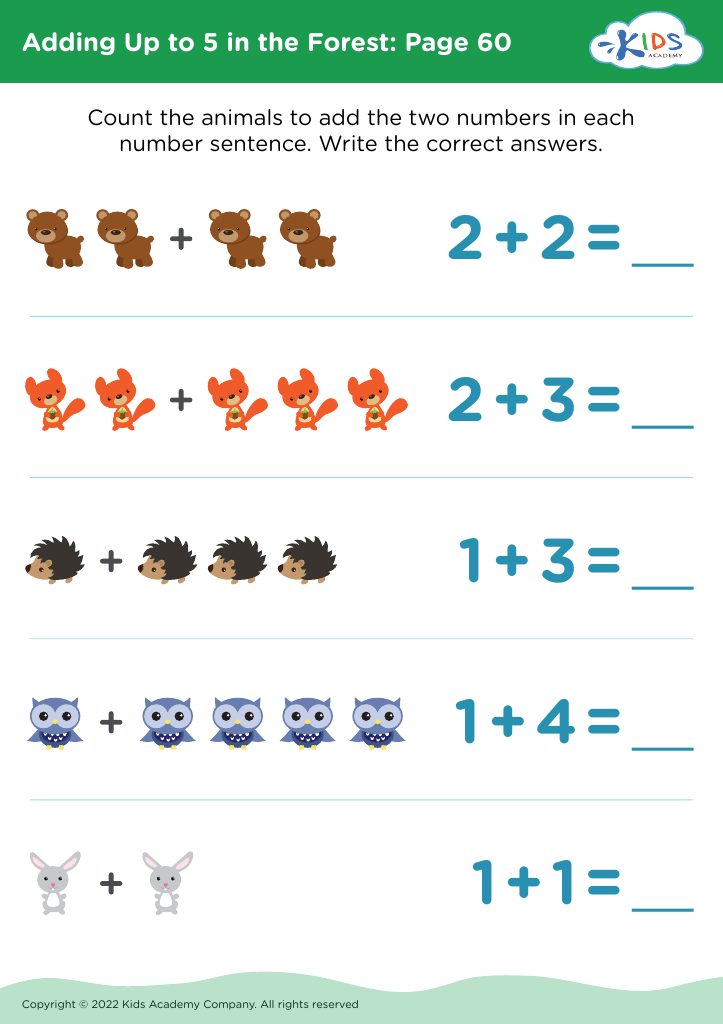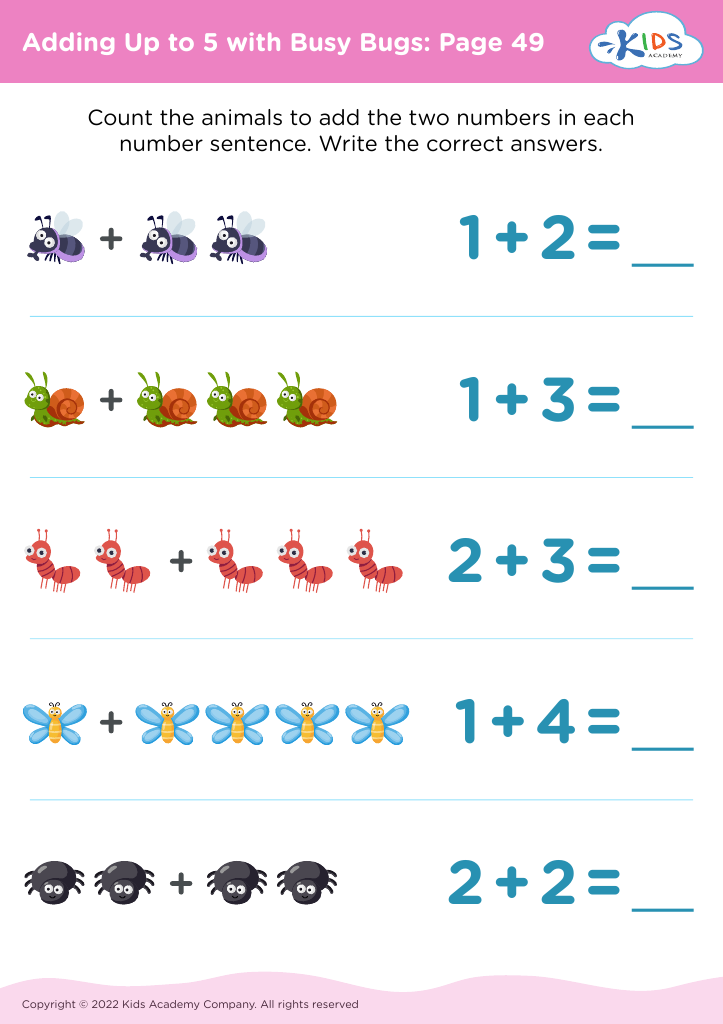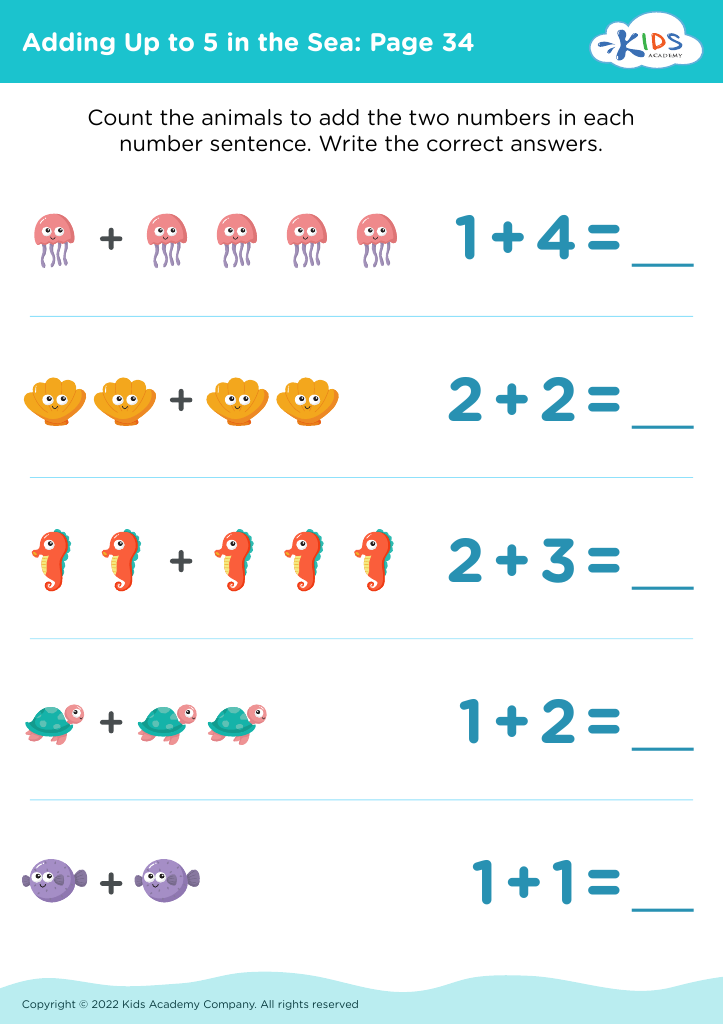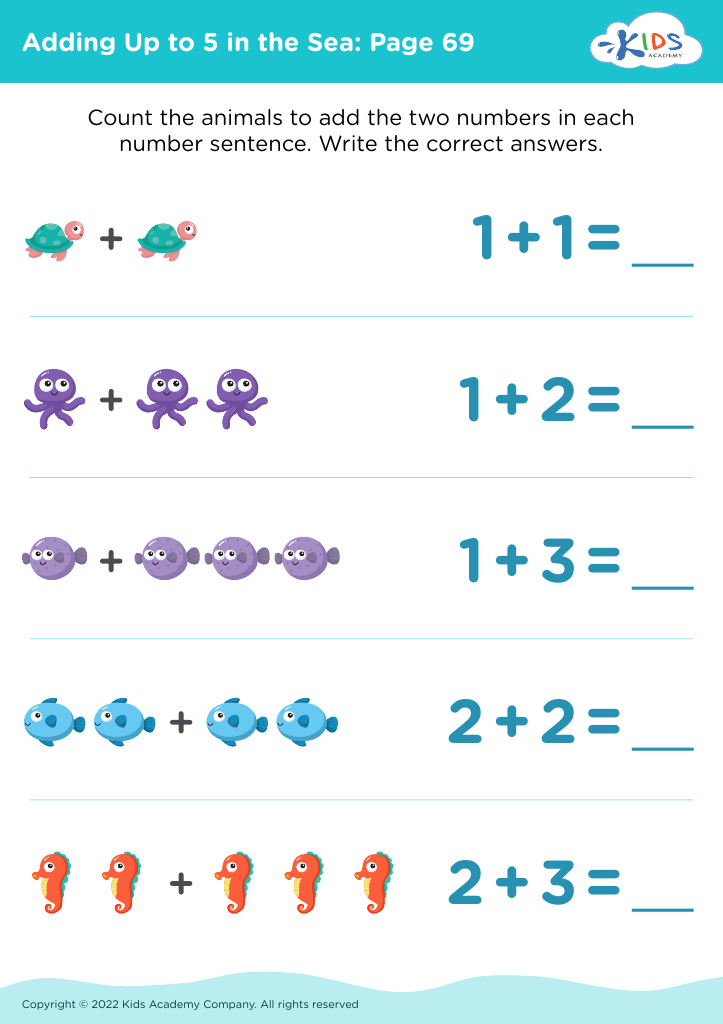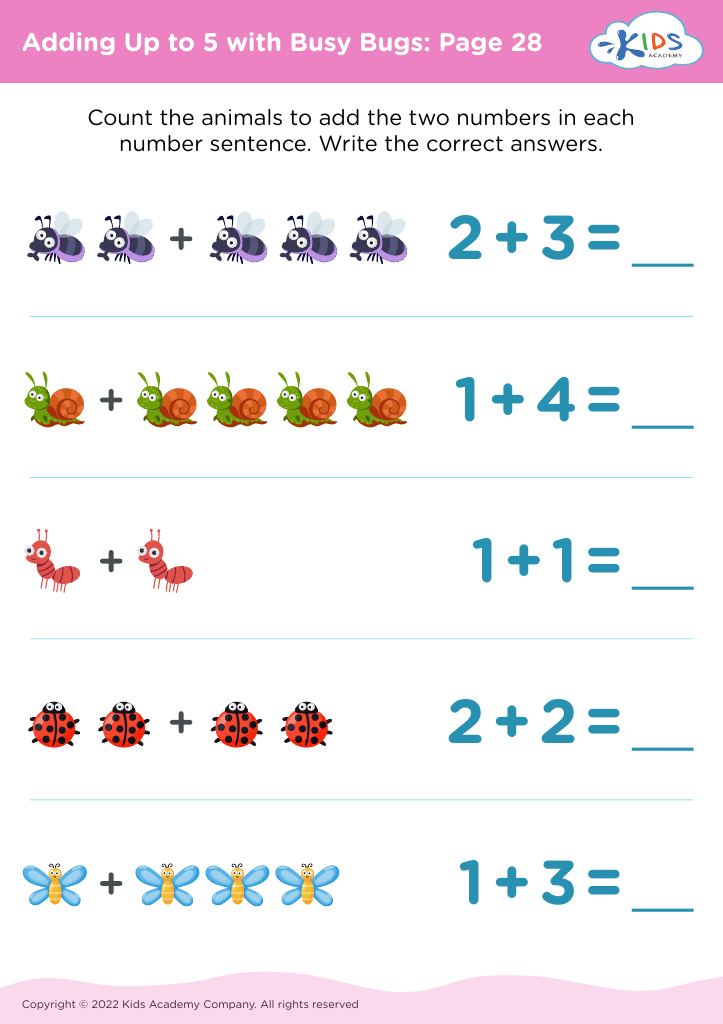Cognitive Development Addition Worksheets for Ages 4-5
101 filtered results
-
From - To
Boost your child's early math skills with our "Cognitive Development Addition Worksheets" tailored for ages 4-5. Our engaging worksheets are designed to enhance cognitive development by introducing foundational addition concepts in a fun and interactive way. Each activity fosters logical thinking, problem-solving, and numerical recognition, ensuring your little one builds a strong mathematical base. Perfect for preschool and kindergarten-aged children, these printable resources make learning addition an enjoyable experience, setting the stage for future academic success. Download today and watch your child thrive!
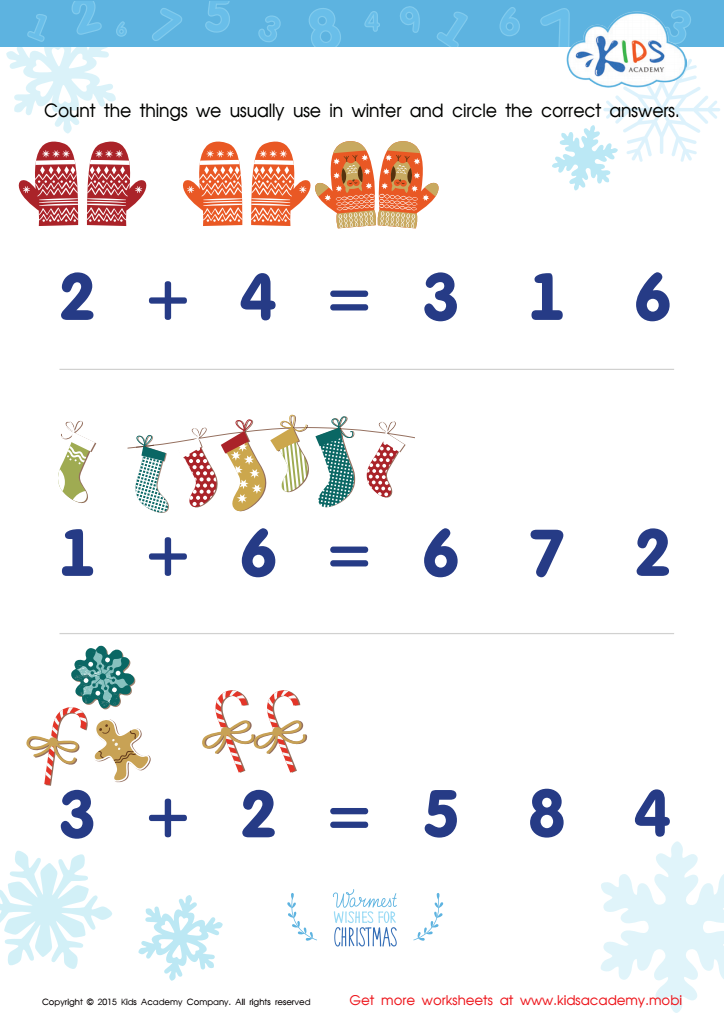

Count Winter Things Worksheet
Cognitive development during ages 4 to 5 is a crucial period where children begin to enhance their ability to think, understand, and learn. At this age, they start to grasp basic mathematical concepts, including addition, which serves as a foundational skill for future mathematical learning. It’s in these early years that the brain is most malleable and can readily absorb new information, making it the ideal time to introduce fundamental concepts.
Parents and teachers should prioritize cognitive development in addition because it not only supports mathematical skills but also enhances problem-solving and logical thinking capabilities. Young children begin to recognize patterns, understand relationships between numbers, and develop critical thinking skills, which are essential for their overall academic success.
Practicing addition can also improve other cognitive functions such as memory, attention, and concentration. When young learners are engaged in counting objects, combining groups of items, or using fingers to add numbers, they are actively involved in hands-on learning that has profound implications for their brain development.
Furthermore, introducing these concepts in a stimulating and supportive environment fosters a positive attitude towards learning. Early success with addition can encourage confidence and a love for mathematics, laying down a solid academic foundation that will benefit children throughout their educational journey and beyond.
 Assign to My Students
Assign to My Students

